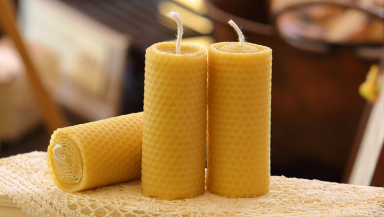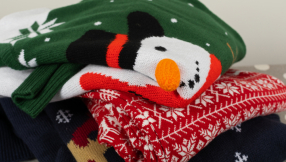
Animal rights campaigners want the incoming Archbishop of Canterbury, Dame Sarah Mullally, to phase out the use of animal-derived materials in churches, including leather-bound Bibles, beeswax candles and wool vestments.
In an open letter to the Archbishop-designate, People for the Ethical Treatment of Animals (PETA) called for what it described as a "modern and compassionate" approach to church furnishings and traditions.
The group said that leather Bible covers should be replaced with plant-based alternatives, while beeswax candles should be substituted with soy wax versions.
According to the letter, "candles symbolising Jesus Christ would better represent hope for bees" if made from plant-based wax. PETA claimed that bees "can feel stress and pain" and alleged that "to procure beeswax, bees are intensively farmed, and queen bees’ wings are often cut off to disable them".
The organisation also criticised the use of wool in clergy garments, saying that the Church should adopt fabrics such as linen or plant wool. "Gentle, clever sheep, who represent God’s people, deserve better than being thrown around wool sheds, stood on, punched and kicked," the statement read.
The proposal has divided opinion among church members and conservationists. While supporters say the changes would align Christian worship with modern environmental ethics, critics argue that the durability and symbolism of traditional materials should not be lightly discarded.
Leather, in particular, has been valued for its longevity, with many leather-bound Bibles surviving for centuries. Some vegan leather alternatives are considered less durable and less biodegradable due to their synthetic content.
A Church of England spokesperson said that while the Church "continues to explore ways to modernise and make worship more sustainable", any future changes "would need to respect both theological tradition and practical considerations".
Dame Sarah Mullally, currently Bishop of London, is set to be formally installed as Archbishop of Canterbury in March 2026.
The debate over ethical materials adds to ongoing discussions within the Church about modernising aspects of worship.
Earlier this year, the General Synod explored the use of alternative ingredients for Holy Communion to accommodate those with wheat or alcohol sensitivities, though current canon law still requires the presence of some wheat and fermented grape content.













